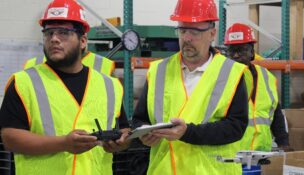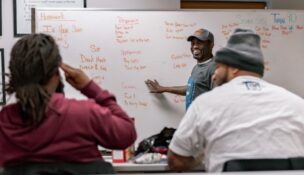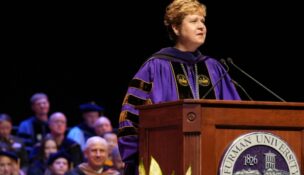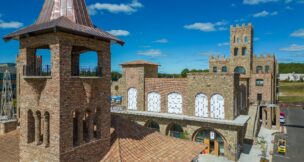Technical college leaders enjoying the love
Ross Norton //September 20, 2019//
Spartanburg Community College President Henry Giles was presented the Order of the Palmetto this month. A few days before that the Upstate SC Alliance honored Ronnie Booth, the recently retired president of Tri-County Technical College. And Gov. Henry McMaster routinely lavishes a generous portion of praise to Greenville Technical College President Keith Miller and his leadership in the state’s efforts in preparing a workforce.
If it seems that technical colleges are having their moment, it’s because they are, according to Giles, who has seen a lot of change at his Spartanburg school since he started teaching math there 50 years ago.
“This system has been here for 56 years and has been doing a lot of good things to the community but I really believe that today is the era of the two-year college and we’re going to see more and more excitement in the two-year college movement because of our affordability and accessibility and sincere concern for students,” he said.
Spartanburg Community College has grown from 32 employees in two buildings when Giles started to five campuses with more than 700 full and part time employees.
The president of the 16-school S.C. Technical College System agrees that it’s a new era for the system which educates and trains more than 175,000 people each year, including about 110,000 who are enrolled in credit programs.
“Our stature has risen in the last few years in terms of image and perception across the state and certainly it helps when you have statements like the governor made in his inauguration. It’s nice when the governor gives you kudos from the Senate floor,” said Tim Hardee, who oversees the system statewide.
McMaster frequently says it’s the best technical college system in the country and, although Hardee said he knows of no official ranking of the systems, representatives from other states frequently visit South Carolina to learn how the technical college system works, both as a teaching system and as an economic development tool.
The reputation and value of the state’s technical colleges have risen together, Hardee said, and they rose because the needs of the employers have become more challenging.
“It (the manufacturing economy) looks a lot different now than it did in 1960. It used to be a textile industry; now it’s advanced manufacturing and we have been able to transition and meet the needs of high-tech manufacturing and the highly skilled individual,” Hardee said. “It’s a result of the good work by 16 colleges and how the technical college system has met the needs of the BMWs and Boeings and Volvos across the state. Part of our success in attracting them was our ability to provide a trained workforce.”
Hardee cited the state’s newest automaker, Volvo, as a success story in which the technical college system’s ReadySC worker training program played a key role.
“Part of the package for them coming to the state was our ability to train the 3,500 people that will work for Volvo,” he said. “Part of attracting them is assuring them we can provide the workforce. And our ability to do so is built not on what we say we can do but on our reputation for doing it. They can call BMW and ask.”
ReadySC has trained nearly 300,000 workers since its inception not long after the system itself was launched, according to its website.
Hardee said even though it has grown in size, the system has been successful because of its ability to respond to changing industry demands and because the people within the system have — in a good way — a chip on their shoulder that makes them eager to adjust to change and prove their value.
“There was … I’ll call it a stigma about what was years ago vocational education — the image was: those are people trained for jobs other people don’t want to do,” Hardee said. “It has evolved so that people understand a young person can have an associate degree with no debt and make $70,000 a year as a 20-21-year-old because of a skill they possess because of training they got at a technical college.”
Referring to Arthrex, which soon will open its new Anderson County plant to manufacture medical devices with the help of 1,000 workers, Hardee said part of the reason for the rise in stature of technical education is the jobs pay better and demand more knowledge and skill from the workforce.
“Our time has arrived,” he said, “and I think it coincided with a demand for high tech high jobs across the state. Arthrex will make artificial hips from scratch and ship them across the world. Thirty years ago that type of job didn’t really exist.”
For young people, those jobs are often more enticing than some of the jobs traditionally gained through a bachelor’s degree, he said.
“We work closely with four-year institutions across the state and will continue to do so. Or you can consider a technical college option and more are choosing it. Quite frankly they’re choosing it because employers are bringing better jobs,” Hardee said.
Greenville Tech’s Miller thinks the good times for technical education are here to stay.
“Two-year colleges are in the public eye for the strong value they provide in delivering career and transfer preparation at a reasonable cost along with their nimbleness, the ability to quickly change and adapt as the needs of all professions change,” he said. “With the public’s appetite for value and the need for agility likely to grow, two-year colleges should have exceptional lasting power, driving success for students and the business community far into the future.”
T















